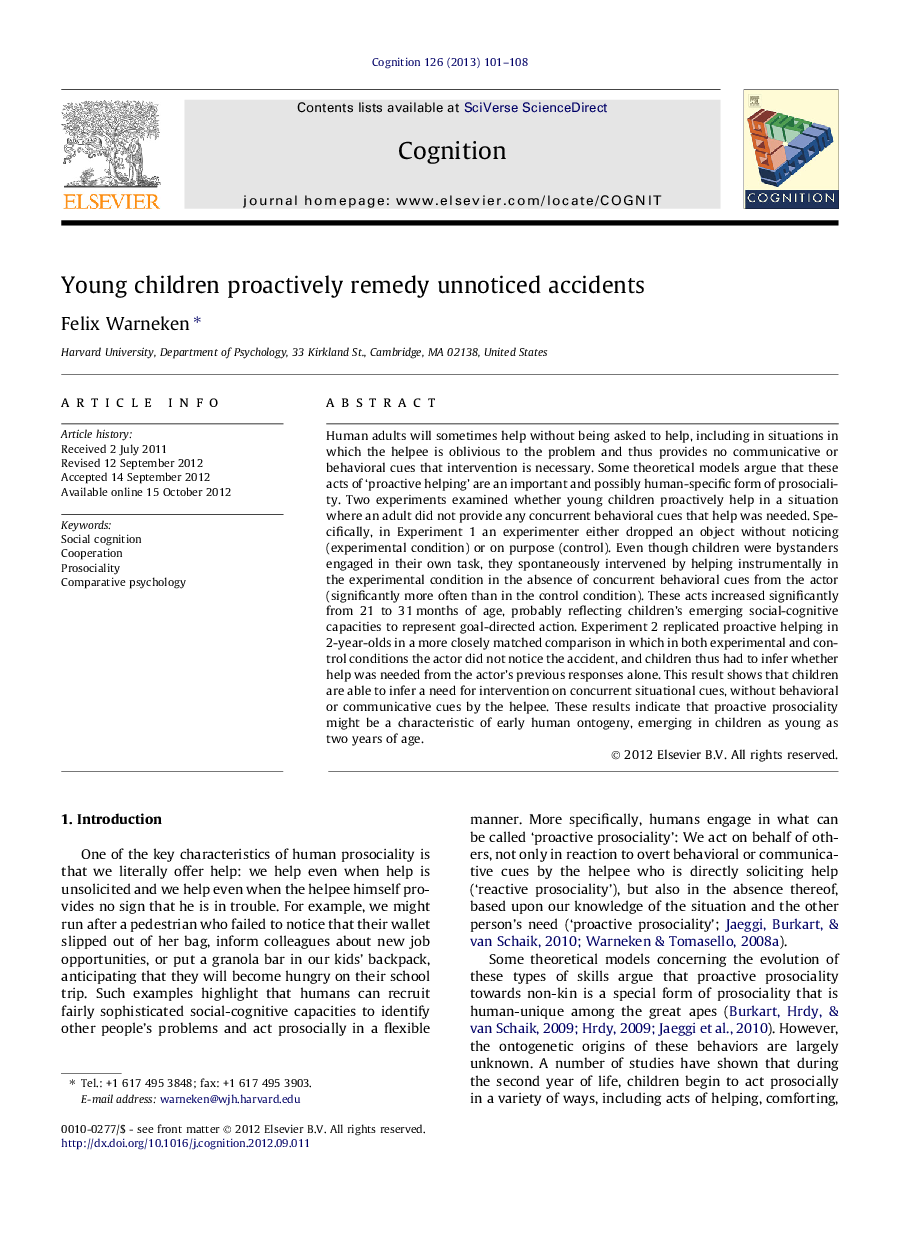| Article ID | Journal | Published Year | Pages | File Type |
|---|---|---|---|---|
| 926881 | Cognition | 2013 | 8 Pages |
Human adults will sometimes help without being asked to help, including in situations in which the helpee is oblivious to the problem and thus provides no communicative or behavioral cues that intervention is necessary. Some theoretical models argue that these acts of ‘proactive helping’ are an important and possibly human-specific form of prosociality. Two experiments examined whether young children proactively help in a situation where an adult did not provide any concurrent behavioral cues that help was needed. Specifically, in Experiment 1 an experimenter either dropped an object without noticing (experimental condition) or on purpose (control). Even though children were bystanders engaged in their own task, they spontaneously intervened by helping instrumentally in the experimental condition in the absence of concurrent behavioral cues from the actor (significantly more often than in the control condition). These acts increased significantly from 21 to 31 months of age, probably reflecting children’s emerging social-cognitive capacities to represent goal-directed action. Experiment 2 replicated proactive helping in 2-year-olds in a more closely matched comparison in which in both experimental and control conditions the actor did not notice the accident, and children thus had to infer whether help was needed from the actor’s previous responses alone. This result shows that children are able to infer a need for intervention on concurrent situational cues, without behavioral or communicative cues by the helpee. These results indicate that proactive prosociality might be a characteristic of early human ontogeny, emerging in children as young as two years of age.
• Proactive helping has been proposed to be a special form of prosociality among humans. • Two-year-old children help proactively in the absence of concurrent behavioral cues. • Proactive helping increases from 21 to 31 months of age. • Young children are motivated to help spontaneously without communicative requests. • Proactive prosociality is a characteristic of early human ontogeny.
